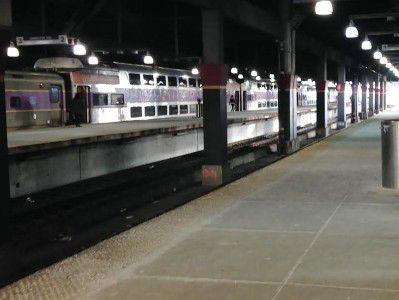
Boston residents’ views toward immigrants have shown to be initially hostile and then decrease with continual exposure to immigrants, as depicted by a study that utilized public transit stations to analyze human behavior.
Ryan Enos, assistant professor of government at Harvard University, published this study Monday. Enos said his research is important now that there is a lot of controversy over immigration policies and equality in Boston.
“There was a broad interest about the effects of diversity, mixing with other types of people, how it affects people’s attitudes and how it affects their behavior,” he said. “You can think about why this is important in a lot of contexts … but it’s especially important in situations like the U.S. right now, where the country becomes more and more diverse because international immigration happens at greater levels.”
Enos said studies like this are difficult to conduct because it is impossible to randomly assign diversity, but train stations provided a good opportunity to collect data.
People who looked and sounded like Latinos, who Enos called “confederates,” were planted throughout Boston-area train stations in communities that have not been affected by immigration. He then surveyed people about their attitudes toward immigration policies at two different points in time during their exposure. A control-group was also used and was surveyed before the planting of the confederates began.
“After the shorter dose of exposure, just three days, you see people … think there should be less immigration and they’re more likely to endorse things like English as an official language of the U.S.,” he said. “We measured again after 10 days, and what you see is that initial exclusionary attitude has diminished somewhat and it looks more like what people’s attitudes were in the beginning.”
The confederates involved in the experiment did not know what the experiment was for as they were participating, but were asked afterward how they felt people were reacting to them.
“Because we are chatting in Spanish, they look at us,” said one confederate. “I don’t think it is common to hear people speaking in Spanish on this route.”
After the experiment concluded, the confederate said that most people were generally friendly to him, but also reported that they felt people noticed them for “not being like them and being Latino.”
Confederates reported that people even began to greet them during their commute, which is more evidence that shows how people warmed up to the different ethnicities.
“People have started to recognize and smile to us,” reported one confederate. One passenger even told them that “the longer you see the same person every day the more confident you feel to greet and say ‘hi’ to them.”
Enos said more analysis of human behavior is necessary in order to understand whether attitudes toward immigrants would go back to the baseline or get better over time.
“[But] based on what we know from previous research is that if people really have a chance to get to know each other as individuals, and have interpersonal contact, then it seems like these attitudes might become even less exclusionary,” he said.
With the hypothesis that an extended amount of exposure to diverse people would result in less discrimination, Enos said Boston should build institutions that would encourage people to mix interpersonally with different types of people consistently.
“[This is a] pertinent issue … the coexistence of the incredibly diverse population,” said Dylan Jenks, 22, of Mission Hill. “I thought it was interesting that this took place in Massachusetts, which has a reputation for being a more progressive state because it really does highlight the effect that unfamiliar situations have on society.”
Taniel Waterman, 22, of Mission Hill, said he finds it strange that U.S. citizens would still be against diversity at all since most of the country is already filled with people of different ethnicities.
“I don’t think it’s right that the general American population wants to declare English as an official language,” he said. “Our country should be focused on incorporating other cultures into our everyday lives even if it’s just commuting to work every morning. Racism stems from a lack of exposure being around other cultures.”
Frank Koran, 32, of Mission Hill, said he was not surprised by the results and said he observes these behaviors himself all the time.
“Cities are growing more and more diverse by the day and Boston is a particularly liberal city,” he said. “Our people should be more than accepting of the different cultures imbedded in this society.”


















































































































